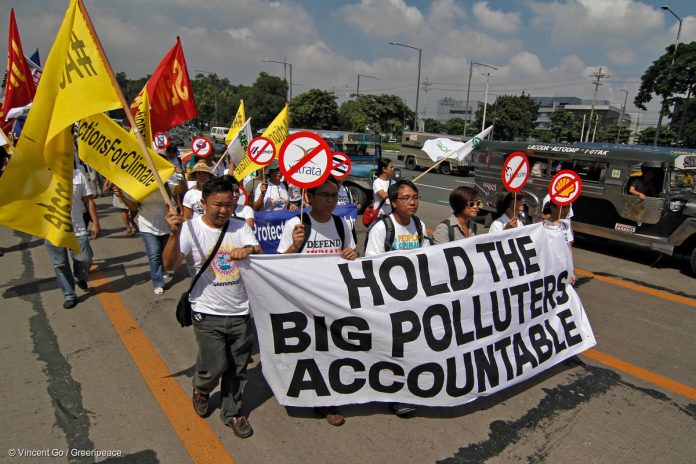Greenpeace this week called on the Philippine government to demand reparations from the fossil fuel industry, and put in place a loss and damage mechanism to make them pay for the “harms to Filipinos brought on by climate impacts.”
The call came as the Intergovernmental Panel on Climate Change (IPCC) published the Synthesis Report of its 6th Assessment Report, which UN secretary general António Guterres said is “a clarion call to massively fast-track climate efforts.”
“The IPCC has issued its starkest warning that we have entered into the most crucial decade,” said Greenpeace senior campaigner Virginia Llorin.
“Filipinos already relive the horror of extreme typhoons every single year—but scientists are telling us that things will definitely and rapidly get even worse,” she added.
Llorin said the report underscores how climate action — and demands for climate reparation — “needs to be front and center of Philippine government policy in order for future generations of Filipinos to have a chance to survive.”
The report’s prognosis, particularly for vulnerable countries like the Philippines, is grim. Some of the key points include:
- Human-caused climate change is already widespread, rapid and intensifying;
- What is happening now is worse than expected: Impacts and risks are getting more severe sooner;
- Those least responsible are hit the hardest; and
- We’re on track to very high risks and irreversible losses.
“But not all is lost,” said Greenpeace in a statement, adding that solutions are already at hand, “and it is still possible to reduce by half climate change causing carbon emissions by the end of the decade.”
“Agreement on the fair and rapid phase out of coal, oil and gas must be a top priority for governments, as well as exacting reparations from climate polluters for the harms caused to countries and communities who are least responsible for the climate crisis,” said the group.
Greenpeace, however, noted that energy policies of the Philippine government “are far from ideal.”
Electricity generation continues to be dominated by coal, and new fossil gas facilities are in the pipeline, it said.
“We need to phase out fossil fuels and call on other countries to do the same,” said Llorin, adding that “the government needs to demand climate reparations from these companies.”
“The situation we face is already bad, and it is projected to get worse,” she added. “But we still have a chance to change course.”
She said renewable energy solutions are on hand, and with urgent action, including phasing out fossil fuels, the 1.5 goal of the Paris Agreement is still within reach.
“Equity and social justice will be a key part of the solutions, as well as political will to ensure strong policies are in place and are being implemented, and to demand justice from big polluters,” said Llorin.









